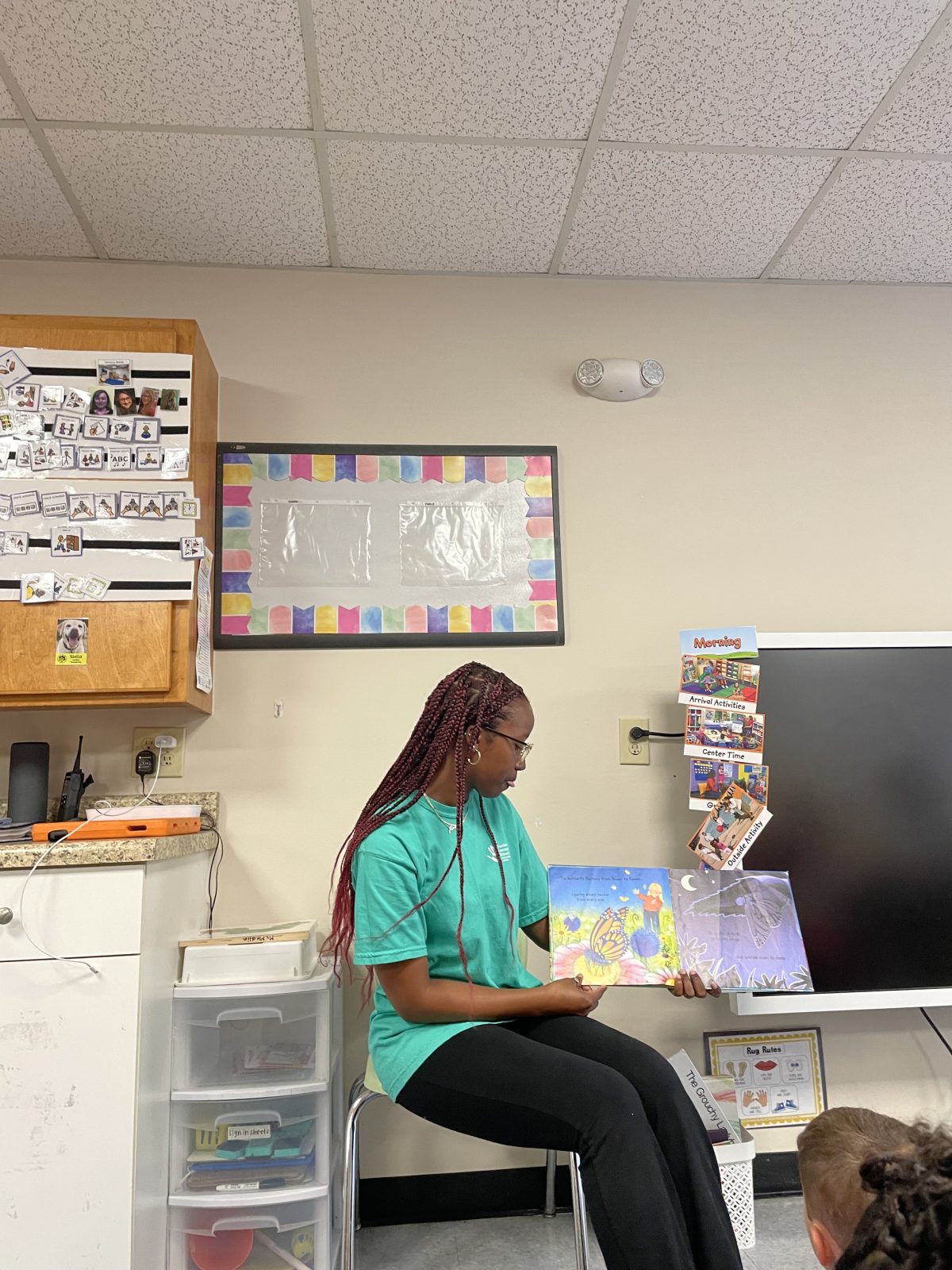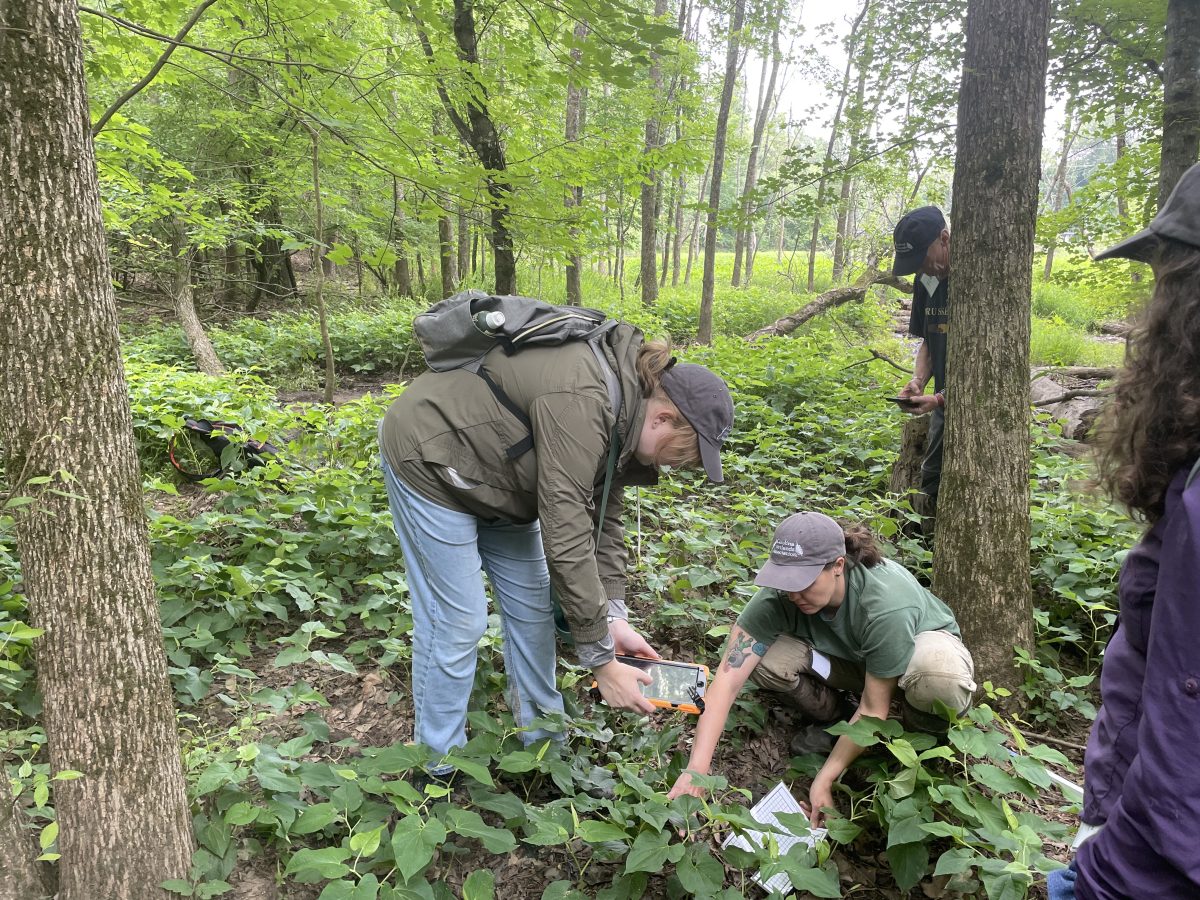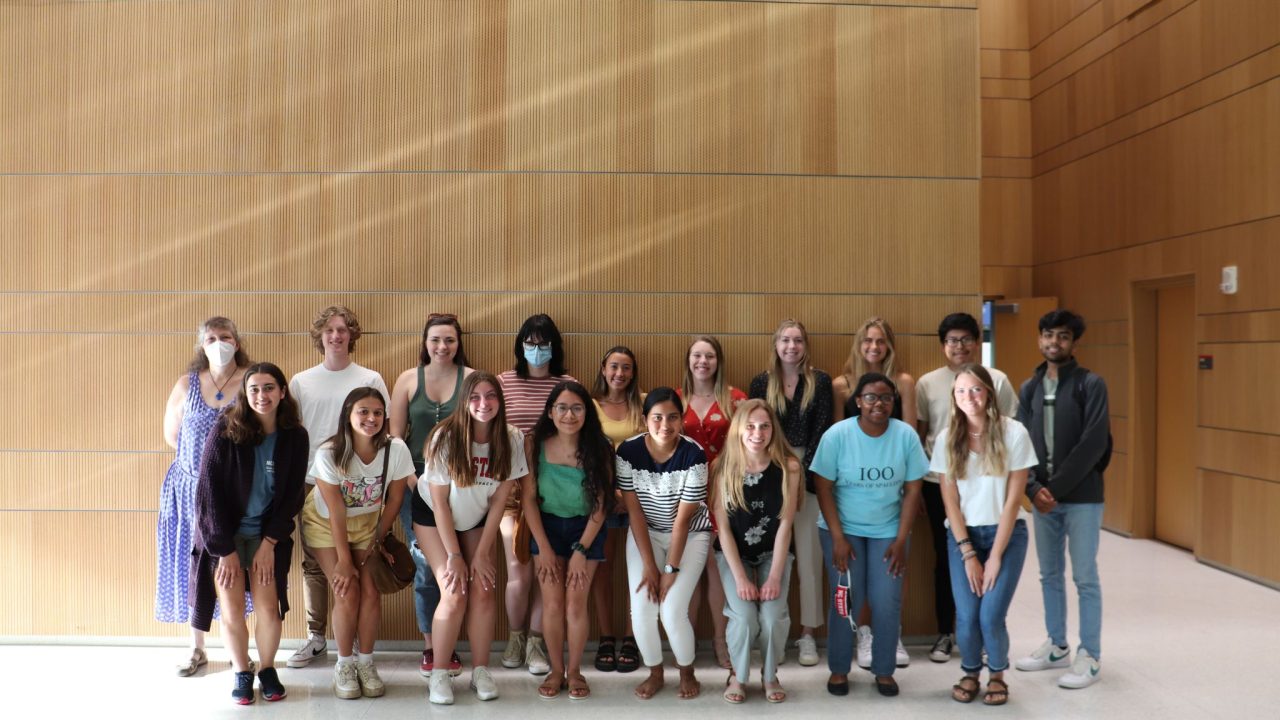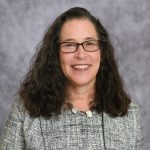Nearly one in every three people in North Carolina lives in a rural area, making access an issue—access to jobs for individuals, access to talent for employers, access to innovative solutions for communities, and access to data for all. Whether facing climate impacts on agriculture or insufficient affordable housing or transportation, rural settings can compound these challenges.
As the Tar Heel State’s land-grant university, North Carolina State University serves as a bridge between rural communities and the solutions they need.
Launched in 2018, Rural Works! offers a hands-on internship experience to students who work with rural employers. The program has grown from 19 interns in its first year to 137 in the summer of 2023, with an increasing focus on data for social impact.
The Challenge
Rural Works! was initially developed as a workforce development program serving rural communities—both the employers located in rural areas, where competition for talent is fierce, and the students coming from rural areas who may not have the same exposure to career advancement opportunities.
That’s the direction that the workforce across industries is moving into. Everyone is going to need to, at a basic level, be able to engage with data science.
Sam Sanger Rural Outreach Coordinator North Carolina State University
Students have access to a paid summer internship, a robust orientation and training process, and career coaching. Participating employers gain access to a pool of talented NC State students, increased capacity, and the ability to test out prospective hires or even new positions before bringing them online. Students may come to the program with an internship already identified or can meet with program leaders to identify areas of interest before applying for program entry and funding.
That worked well for the first few years. But as the demand continued to grow from both sides of the program and staff developed a deeper understanding of what private, public, and nonprofit organizations in rural counties needed, it became clear that access to talent wasn’t the only challenge that Rural Works! could help solve.
These organizations—many of them small and understaffed—had little to no data infrastructure and limited capacity for expanding their use of data to identify solutions, implement changes, and drive progress.
The Solution

In 2020, Rural Works! received a grant from the State Employees Credit Union Bank and implemented a summer internship called the SECU Public Fellows Internship Program. Building on the success of their early internship placements, the program engaged the university’s Data Science Academy to enrich the professional development experience for students and add a new layer of problem-solving for employers.
Now, in addition to the typical onboarding and training processes for interns, participating students take a data science tutorial through the Data Science Academy and are paired with one of its graduate assistants. The graduate students and their faculty advisor, Hangjie Ji, were supported by a grant from data.org.
“The Data Science Academy is delighted to partner with Career Development Center and SECU to build data science capacity across North Carolina,” said Dr. Rachel Levy, executive director of the Data Science Academy and professor of mathematics. “The program aligns perfectly with our goal to bring new data science expertise to all 100 NC counties.
Oftentimes, this is the student’s first exposure to data science.
For most students, it’s about exposing them to the world of data science—it’s not a scary world.
Hangjie Ji, Ph.D. Assistant Professor of Mathematics North Carolina State University
“That lack of experience is really what made this a valuable professional development opportunity for them. Data science is for everyone,” said Sam Sanger, the university’s rural outreach coordinator, adding that it is a first for many of the employers, as well. “Most of the employers are grateful because in nonprofits and government organizations, people are stretched thin, so these projects are things that they wouldn’t have had time for otherwise.”
Data projects are designed locally, with interns working side by side with employers to understand where and how data could be most useful to their operation. Together, they identify project goals and potential obstacles, and then interns work with the more experienced graduate assistants to develop a project.
Through this process, Dr. Hangjie Ji, an assistant professor of mathematics at NC State, has seen new possibilities take shape. One student who went through the one-credit data internship course was able to craft a more data science-intensive Rural Works internship the following summer, some have expanded beyond the original scope of their projects, and others have expressed an interest in deeper data science learning, seeking out opportunities to learn coding in languages like Python.
“For most students, it’s about exposing them to the world of data science—it’s not a scary world,” she said.
Sanger shared the story of a political science major who interned with a Veterans of Foreign Wars chapter and used her data science project to evaluate the organization’s tax and purchasing data. By going through past receipts, she ended up saving them $10,000 in the first year and identified ongoing savings to the tune of $3,000 a year.

Varun Deepak Gudhe is one of the graduate assistants working with the interns. He can tick off a long list of projects and their benefits for both student and employer: a timeline of disability legislation and its impact on fundraising for an inclusion organization; data visualization on monthly museum attendance and its correlation to events and marketing; and a student who had no formal data to pull from and instead traveled from farm to farm in a rural county to collect and later analyze data on crop changes, crop growth, and fertilization schedules.
“She offered real solutions for those farmers,” Deepak Gudhe said. “It shows that even in biology or agriculture, medical school—any field of study—data science can be integrated.”
The Takeaway
At the conclusion of the Rural Works! internship program, students give presentations to State Employees Credit Union Bank representatives, reinforcing the value of the funding.
“We’ve gotten fantastic reviews on how prepared our students are to give those presentations,” Sanger said.
For other universities considering a similar offering, Ji warns that institutions must focus on building an inclusive approach to student engagement, removing barriers, and opening up new pathways to access data science education.
The Data Science Academy is delighted to partner with Career Development Center and SECU to build data science capacity across North Carolina.
Rachel (Ray) Levy, Ph.D. Executive Director of the Data Science Academy and Professor of Mathematics North Carolina State University
“In terms of the exposure to the concepts of data science early on, many programs have a lot of prerequisites in place. That may be a little intimidating or may delay the whole process of students getting involved,” she said.
Levy adds that “this program has proven to be successful with no prerequisites, by setting reasonable expectations and providing mentoring and support. This aligns with the philosophy of the 1-credit courses offered by the Data Science Academy, many of which have no prerequisites and provide a gateway to data science for all NC State students.”
Once students do get involved, Sanger says the experience can be transformative. He hopes to engage more majors and colleges within NC State and further expand the program to meet the continuously growing demand.
“I would have loved to have been able to take a one-credit course or access this kind of opportunity when I was an undergrad because that would have prepared me so much for research projects in grad school. It would have prepared me for my job here,” he said. “That’s the direction that the workforce across industries is moving into. Everyone is going to need to, at a basic level, be able to engage with data science.”



